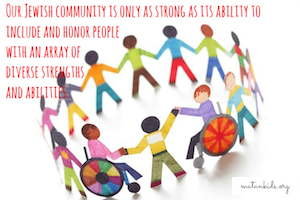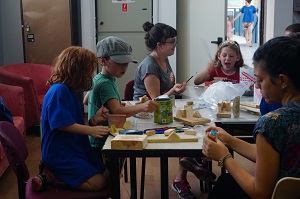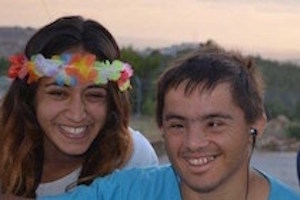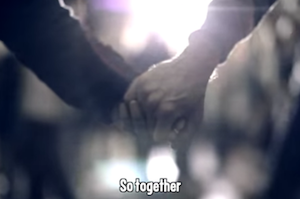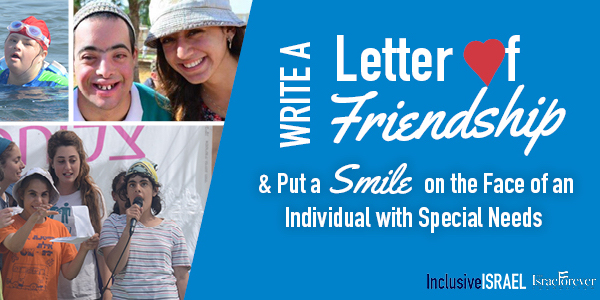Caleb's Story
By Beth Steinberg
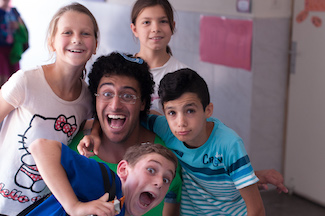
"No, there's nobody with special needs in my camper group," said 8-year Caleb, a Shutaf day camper.
His mom smiled, and continued to ask him about his camp day and favorite activities. When she called to tell me the story, she asked me, "Is it possible that his group doesn't have any campers with disabilities?" I laughed and said, "Nope, not possible!"
Not only did his group have Shutaf's usual mix of 75% campers with disabilities and only 25%, or, 1/4 of the group campers without disabilities, Caleb’s group of campers also represented Shutaf’s typical mix of needs ranging from learning challenges to Down syndrome, Autism Spectrum Disorder, cerebral palsy, emotional/behavioral issues and more.
That's just how we roll, how we include at Shutaf Inclusion Programs in Jerusalem.
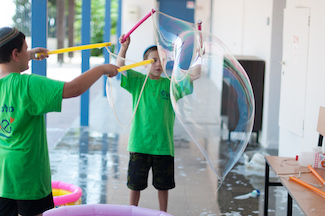
The first time it happened, back when we started Shutaf in 2007, we laughed and said, "I guess that’s a fluke." The second and third time? We started taking more careful notes, beginning the process of a data collection process that would show the success of Camp Shutaf's innovative, reverse inclusion model and educational approach.
Mind you, inclusion is not the norm in Jerusalem’s overcrowded public schools, religious and secular, where classroom size often exceeds 35 children and 1 overwhelmed teacher. Even children with milder learning and/or emotional/behavioral and social challenges often end up in special education’s more restrictive environments because of these very real issues.
That’s where Shutaf comes in. At Shutaf we see day camping as the perfect platform for pushing the inclusion envelope. Informal education frees educators and parents from the concerns of school curricula focused on academic excellence and achievement. At camp, children with more limited independent living skills, developmental differences, or more challenging behavioral disorders can all be given the inclusion opportunity.
All are welcome in the inclusive Shutaf camp community.
Like Hallel and her family. First Eliav, and his younger sister, Mia, joined Shutaf. Then, younger brother, Adin. Last summer? Little sister, Hallel, arrived at summer camp. Here’s the fun part. Hallel has Down syndrome, her siblings are typical. Their parents chose Shutaf initially because they wanted to expose their older children, who are typical, to difference and disability. Hallel only entered the program this past summer, at the age of 6. Her older siblings? They’d been Shutaf fans for years already.
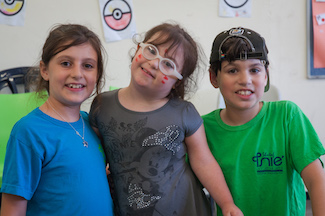
What’s more inclusive and more manageable for families then to be able to enroll all of your kids into one program instead of four? At Shutaf, we’re proud of being able to respond to the needs of children, teens, and young adults, ages 6-23. And if a child moves on to another program, we’re happy, glad that they had choices available to them that responded to their changing needs and interests. As it should be.
Except that most of the greater Jewish community - and beyond - are still a bit frozen on the subject of inclusion, disability, and acceptance. What seems like the right thing to do, is too often held back by fear, by lack of experience, and by lack of opportunity.
Today, let’s start with the first step. Don’t know someone with a disability? Find someone. You shouldn’t have to look too far given that 15% of the world’s population - an estimated billion people - has a disability of some sort.
That’s a friend. A friend’s child or teen. An older family member. The person you pass on the street. Say hi. Get to know their story. Listen and learn.
Next time? Step 2.
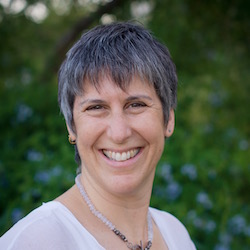
Beth Steinberg is the executive director and co-founder of Shutaf Inclusion Programs, offering year-round, informal-education programs for children, teens and young people with disabilities in Jerusalem. Shutaf is committed to an inclusive teaching model that welcomes all participants - with and without disabilities - regardless of religious, cultural and socioeconomic differences. Beth moved to Israel in 2006, from Brooklyn, N.Y. She regularly writes about parenting issues on the Times of Israel, and is the artistic director of Theater in the Rough, creating engaging theatrical experiences for Jerusalem audiences.

